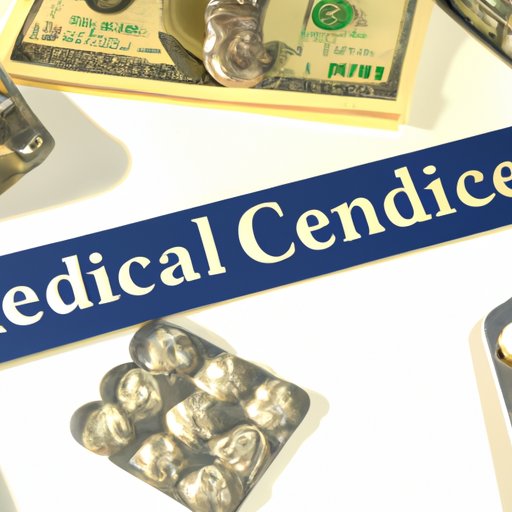Introduction
Medicare is a federal health insurance program that provides coverage to people who are 65 or older, as well as some disabled individuals. While Medicare covers many medical costs, it does not provide coverage for routine dental care. This can leave many people wondering if they have any options for dental coverage under Medicare. The purpose of this article is to explore different types of Medicare dental plans, as well as how to determine if your dental care is covered and what you need to know about Medicare and dental care.

Different Types of Medicare Dental Plans
When it comes to dental coverage, there are three main types of Medicare plans available: traditional Medicare, Medicare Advantage plans, and Medicare Supplement plans. Each of these plans offers different levels of coverage, so it’s important to understand the differences between them in order to make an informed decision.
Traditional Medicare
Traditional Medicare does not cover dental services, such as cleanings, fillings, or other preventive or restorative care. However, Medicare Part A may cover certain dental services that are considered medically necessary. These include dental services that are needed due to an illness or injury, or to prepare for a procedure that is covered by Medicare.
Medicare Advantage Plans
Medicare Advantage plans are offered by private insurers and provide additional coverage beyond traditional Medicare. Many of these plans include coverage for some dental services, such as preventative care, basic procedures like fillings, and even major procedures such as root canals and crowns. However, coverage varies from plan to plan, so it’s important to carefully review your plan’s coverage to make sure it meets your needs.
Medicare Supplement Plans
Medicare Supplement plans are designed to help cover some of the out-of-pocket costs associated with traditional Medicare, such as copayments, coinsurance, and deductibles. Some Medicare Supplement plans also offer limited coverage for dental services, but these plans do not usually cover routine care or major procedures.
How to Determine if Your Dental Care is Covered Under Medicare
It’s important to understand what services are covered and what services are not covered under Medicare. Most preventive care, such as cleanings and exams, is not covered by Medicare. Basic services like fillings, extractions, and dentures may be covered if they are deemed medically necessary. Major services such as root canals, crowns, and bridges may also be covered if they are deemed medically necessary.
What You Need to Know About Medicare and Dental Care
In addition to understanding what services are covered, it’s important to understand your out-of-pocket costs. Traditional Medicare does not cover routine dental care, so you will have to pay out of pocket for these services. Medicare Advantage and Medicare Supplement plans may offer coverage for some dental services, but the amount of coverage and out-of-pocket costs will vary depending on the plan.
It’s also important to look into other options for dental coverage. There are a variety of private dental insurance plans available, as well as discount plans that can help reduce the cost of dental care. If you have a limited income, you may be eligible for Medicaid, which provides coverage for certain dental services.
Comparing Medicare Dental Plans to Traditional Dental Insurance
When comparing Medicare dental plans to traditional dental insurance, it’s important to consider both the cost and coverage. Traditional dental insurance plans typically have higher premiums than Medicare Advantage and Medicare Supplement plans, but may offer more comprehensive coverage. On the other hand, Medicare Advantage and Medicare Supplement plans may have lower premiums, but may also have more limited coverage.

Understanding the Cost of Dental Care Under Medicare
When receiving dental care under Medicare, it’s important to understand the cost of the services. Medicare Part A and Part B have deductibles, coinsurance, and copayments that must be paid before the services are covered. Additionally, some Medicare Advantage and Medicare Supplement plans may have additional out-of-pocket costs.

Tips for Finding the Best Medicare Dental Plan for You
Finding the best Medicare dental plan for you can take some time and research. It’s important to compare different plans to find one that meets your needs and budget. Reach out to your local Medicare office for more information about plans in your area. Additionally, you can talk to your dentist about their experience with different plans and ask for advice on which plan might be best for you.
Conclusion
Medicare does not cover routine dental care, but there are other options for dental coverage. Traditional Medicare, Medicare Advantage plans, and Medicare Supplement plans all offer different levels of coverage for dental services. It’s important to understand the cost of dental care under Medicare, as well as the coverage offered by each type of plan. Researching different plans and talking to your dentist can help you find the best plan for your needs.
(Note: Is this article not meeting your expectations? Do you have knowledge or insights to share? Unlock new opportunities and expand your reach by joining our authors team. Click Registration to join us and share your expertise with our readers.)
